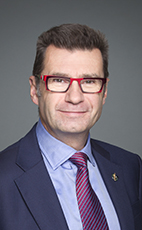Mr. Speaker, I rise today in strong support of Bill C-224, the good Samaritan drug overdose act.
As we have heard, the bill would encourage people to call 911 to report drug overdoses by protecting them from prosecution for drug possession. It would also exempt anyone at the scene from possession charges, but it would not apply to more serious offences like trafficking or impaired driving.
Drawing on my 20 years' experience as an emergency physician, I can say with confidence that, if passed, Bill C-224 will save lives.
We have all seen the headlines about rising numbers of overdose deaths in Canada, especially from the powerful opioid, fentanyl. On Friday, April 15, British Columbia declared a public health emergency with over 200 overdose deaths in the last three months. In the emergency room and too often in the morgue, we see the human toll behind these numbers.
Victims of drug overdoses are not statistics. They are our fellow Canadians. They are our neighbours, our friends' kids, maybe our own family. I stand today to say with conviction that in a medical emergency brought on by an overdose, fear of the law should not prevent people from picking up the phone and saving a life.
I hope all members will join me in thanking the member for Coquitlam—Port Coquitlam for bringing forward this timely and important piece of legislation. Common sense tells us and evidence confirms that Bill C-224 will help eliminate the delays in treatment that lead to debilitating injuries and death. I only wish Parliament had passed such a law years ago. It is heartbreaking to think of the lives that could have been saved.
In my own clinical experience in the emergency room, I have encountered patients who, because of their signs and symptoms, have caused me to suspect that they are under the influence of one or more potentially dangerous substances. The findings of physical examination alone are too variable to provide sufficient information, and laboratory tests often take too long to be of benefit.
I have to ask these patients, or those who accompany them, what substances they have taken. Typically, they are reluctant to provide this information. However, once I explain that there is no risk of prosecution due to patient-physician confidentiality, they give me honest answers and I am able to provide better care.
On more than one occasion this ability to gather information has prevented tragedy. However, this degree of confidentiality is not guaranteed in the community when people have to communicate with first responders. This freedom to communicate frankly with emergency services must be extended to anyone in our communities who witnesses or experiences an overdose. How can we compare the value of convicting someone on a minor charge with the value of saving a life?
In 2016 we see addiction as a health issue. I speak as an emergency physician with much of my 20 years of clinical experience in the poverty-stricken core of Winnipeg. I am aware that some people perceive persons who overdose as having made a bad decision and are therefore responsible for their fates. Perhaps they believe that saving overdose victims is not a moral obligation. However, it is almost unanimously accepted by the medical profession that addiction is an illness.
Furthermore, it is not widely understood by the public that drug abuse is highly correlated with underlying mental illness, as many individuals with undiagnosed or poorly controlled mental illness ingest substances in an attempt to self-medicate.

